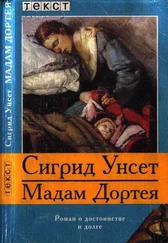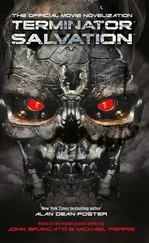The day after they’d moved in, Cole had taken a walk by himself to the end of the street, and as he was coming back a long-haired boy on a bike had suddenly appeared, whizzing past him from behind. “Outta my way, fag-boy!” But Cole had never seen that boy again.
Though pedestrians were a rare sight, Cole saw two animals from time to time: a calico cat that appeared to live under the porch of the house directly opposite, and a slightly lame chocolate Lab that wore tags but was allowed to roam free. Whenever he saw either of them, Cole couldn’t help wondering. Cats and dogs were smart, and they were sensitive, too. Did they have any idea that their human friends were in such deep shit? Cole knew animals could get the flu, too. In fact, there were people out there who blamed birds for what was happening and were shooting or trapping and killing them. There were crazies who believed any animal might carry the infection and were destroying every one they could get their hands on, even their own pets—the same kind of thing that had happened during the 1918 flu.
Cole’s father had told him how, when the United States was at war with Germany, there were people who’d walk up to dachshunds in the street and kick them. (“I bet they wouldn’t dare do that to a German shepherd,” Cole said.)
But imagine all the human beings on earth getting wiped out. A lot of animals would have to be happy about that, wouldn’t they? All those animals on the verge of extinction—they’d be saved then, wouldn’t they?
There were those who’d come right out and said it. The pandemic might be the worst thing ever to happen to mankind, but it might turn out to be the best thing to happen to Planet Earth.
This is not the end of the world. It’s Nature’s way of saving it.
Self-hating scum! Whoever thinks that deserves to die!
His mother wasn’t the only one in full-frontal freak.
To Cole, it was pretty exciting, albeit in a sick-making way, like watching an ultra-realistic slasher flick, or going on a roller coaster when he was still young and dumb enough to think it was a death-defying thing to do.
Men in riot gear with snarling dogs storming people storming pharmacies. It was like an extreme version of the madness of grown-ups in general.
It always gave him some satisfaction, seeing grown-ups lose control. He didn’t know why. It had to do with hating them, of course, but that begged the question: When had that started anyway? Cole couldn’t say. And though it could seem that the way he felt about his parents these days was the way he’d felt about them his whole life, he knew this wasn’t so.
“This is new,” his mother told her friends. “He used to be Cole the Cuddly. Now he’s practically autistic.”
It was true he didn’t want his parents touching him. Not that he could remember the last time his father had tried. What he did remember, though, was climbing onto his father’s lap and his father snapping his legs straight so that Cole slid to the floor. This had happened about four years ago. At first Cole had thought it was a game. He’d started giggling but stopped when he saw his father’s face. “You’re too old for that.” Voice like ice.
Cole often recalled this humiliation and how he had cast about in his mind for some way to pay his father back. But now that his father was so sick, thinking about this made him want to smash something.
Hard to believe only four mornings ago he’d watched his father, dressed in his usual tan and orange running clothes, sprint toward the house just as Cole and his mother were getting into the car to drive to school. Now, inside the house (or even out on the porch), you could not escape the sound of his hacking. It tore your own throat to hear it. When his mother was there, Cole saw how every cough made her flinch, like a whip being cracked in her face.
His mother was the only one who went out anymore. When she went out she always wore the same bandanna tied over her nose and mouth. It was the only one she had and it was getting filthy, she complained. The first time Cole saw her leaving the house with the bandanna on he warned her not to walk into a bank, and they’d both laughed. Now what he noticed (but did not say) was how covering the lower part of her face made her eyes look even bigger with fright than usual.
He’d seen his mother frightened before, he’d seen her worried and upset more times than he could count, but he’d never seen her quite like this. There was another element in the mix, and it took Cole a while before he could name it: he’d never seen her trying to be brave.
“I still say we’re going to be all right.” She kept repeating this, each time with a sharp little thrust of her chin. “Dad’s strong. Dad’s going to make it. We’re all going to make it. By the way, don’t you have any homework?”
Completely forgetting there was no more school! They’d laughed together about that, too. And then she had started to cry.
Being brave didn’t mean she could stop herself from breaking down at least once a day.
Each time she returned from having been out, she’d collapse on a chair as if she had run on her own steam to and from her destination and needed to catch her breath. Then she’d report on how much emptier the streets were, how many more places had closed, how much less there was to be found on the shelves of the stores that were still open.
After the mailman hadn’t shown up two days in a row, she went to the post office and found it closed. “Imagine, not even a sign on the door. You’d think they’d at least let people know what the hell’s going on.”
When she finally got through to the health department hotline, all they could tell her was to keep the patient in bed and give him lots of fluids. “It took all my strength not to start screaming.”
Though from time to time she did scream—about the lack of information and how inept the people in charge were—she was mostly mad at herself. For not having been prepared. For not having understood the amount of danger they were in. There was a certain forgiveness-begging air she took on when she knew she’d hurt or let someone down, an air that made her look like a punished child. No matter how angry Cole might be, whenever he saw his mother like this he’d go straight from feeling angry to feeling sorry for her, a feeling he found particularly unpleasant—far more unpleasant than anger. It could happen with his father, too, in which case the unpleasantness was even worse. Except that it was a very rare thing for Cole to feel sorry for his father.
Her last trip to the supermarket she was gone less time than usual and returned in tears.
“Now they’re not even letting people inside. I had to shout through the door and tell this guy what I wanted. Then he went and collected it all in a bag and put the bag on the ground outside the door. He yelled at me not to approach the bag until he’d closed the door again. And there was this locked box to slip the money in, and if you didn’t have the exact amount, tough shit, they weren’t making change. And this guy was so nasty, too, shouting Keep back! Keep back! like I was some kind of rabid dog. Plus he had a shotgun.”
Among the few things she’d brought home this time was a loaf of raisin bread, which she confessed she had found in the parking lot. “Someone must have dropped it,” she said. “It seemed crazy not to take it, since we don’t know when all this is going to end. My god, what a time to be stuck in the middle of fucking nowhere! As soon as Dad’s feeling better, we are so out of here.”
There were some people in town who appeared to be organized, who had managed to collect food and other necessities and had put out the word that they’d help anyone who needed them. Some of them had even started going door to door. But they were Jesus freaks, his mother said, and she didn’t want to get involved with them.
Читать дальше












